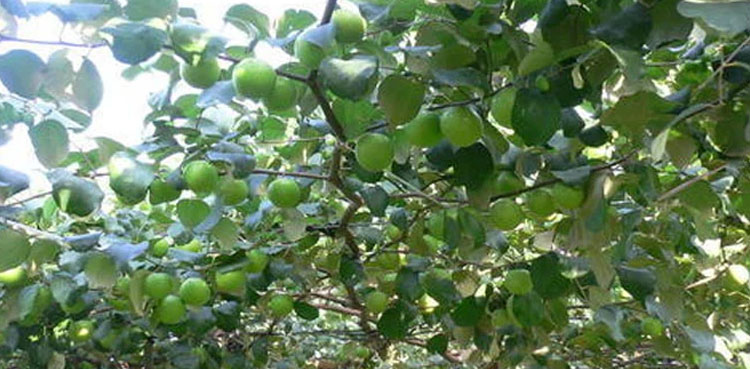
Sindh’s largest desert region of Tharparkar is yielding fruits, including apple ber and chiku, thanks to bio-saline agriculture techniques.
Rich in coal and poor in water, Thar usually banks on rainfall to grow crops. But, due to the bio-saline technique successfully experimented by the Pakistan Agriculture Research Council (PARC) three years back, the desert region is able to irrigate orchards and crops.
Speaking in ARY News programme Bakhabar Savera, PARC-SARC Director General (DG) Dr Attaullah Khan said it was an effort to try something new using his past experiences.
“In 2012-13, ex-PARC chairman Dr Iftikhar Ahmed visited Thar and posted me there,” Dr Attaullah recalled, adding: “He (Dr Iftikhar Ahmed) said he wants to see this centre as the centre of excellence and he supported me.”
“We thought it was not possible. But he (Dr Iftikhar) said it is unfortunate if a scientist says so.”
Dr Attaullah said he had submitted a proposal to the Ministry of National Food Security to bring about a similar revolution in the livestock sector in the Thar region.
The DG explained that livestock production is possible even in areas where total dissolved solids (TDS) is 6,000 and above. However, he added, Thar’s underground saline water had 3,500-4,000 TDS level.
He pointed out that Thar depends on livestock. Thari cow breed was taken to India and Brazil where it produces up to 38 litre milk in a day but that cow produces a mere 4 litre milk in Pakistan, stressing the need for revamping the livestock sector.
The post Thar yields fruits thanks to bio-saline agriculture techniques appeared first on ARY NEWS.
ALSO VISIT FOR ONLINE EARNING Google Class





